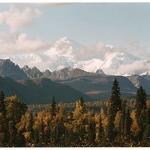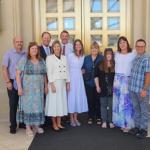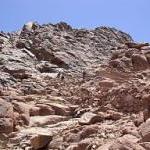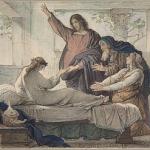
Many wonder how the Sea of Galilee, a lake one can see across, produces storms so violent they can cause shipwrecks. These storms come because the lake is below sea level, leading toward the Dead Sea, the lowest place on earth. But the Sea of Galilee is surrounded by mountains—like a bowl—so when hot air rises up, cold air gushes in, bringing on violent storms. By its very nature and location, the sea was made for storms. Mortality is like the Sea of Galilee: it is a low place compared to the reaches of eternity. Clashing conditions produce storms in a low spot; like Galilee sailors we must understand them and look to rescue offered us.
Risks in a Low Spot
When near the Sea of Galilee, I’ve seen night storms so violent that waves crashed against the hotel. Working among Church members worldwide, I’ve seen life storms with waves high enough to crash unbearably on individuals.
Elder Ricado P. Giménez warned,
The time will come for each of us when we will face unexpected challenges and storms that will push the limits of our ability to endure. Physical, mental, family, and employment challenges; natural disasters; and other matters of life or death are but some of . . . the storms that we will face in this life. 1
President Dallin H. Oaks added specifics to a low spot storm list: sickness and other forms of “ill health,” contention, poverty, job loss, family sadness, and “effects of sin.” He quoted Elder Richard E. Scott: “Sometimes they are so concentrated, so unrelenting, that you may feel they are beyond your capacity to control.” 2
The more we sink into such a low spot, mountains around us can produce the cold air of circumstance, and devasting storms can arise, some very quickly—as on the Sea of Galilee.
Relief From Our Savior
During the violent storm reported in Mark 4, those on the ship became frightened, but they knew that the Savior was with them—they just had to wake Him from where he was “sleeping” at the rear of the ship. He knew what was going to happen, he was careful not to miss the ship, but he waited until they came to him.
And he arose, and rebuked the wind, and said unto the sea, Peace, be still. And the wind ceased, and there was a great calm.
And he said unto them, Why are ye so fearful? how is it that ye have no faith?
And they . . . said one to another, What manner of man is this, that even the wind and the sea obey him? ( 39-41).
This man, our Savior Jesus Christ, loves us today as He loved His followers of old. He understands when we are in a low spot and knows the conditions around us. As with those in the Galilee ship, He does not leave us alone.
Elder Ricado P.Giménez, quoted earlier, has seen many storms “battering” people. He has assured us that even though we might not see a solution or end to it, “there is only one refuge . . . the same for all storms . . . provided by our Heavenly Father [in] our Lord Jesus Christ and His Atonement.” This refuge will bless us with “relief, comfort, strength, temperance, and peace.”
President Oaks, also discussed earlier, told us that storms are part of the human experience and God did not intend for us to face them without Him.
President Eyring extended the promise to concern “for ourselves and for those we love” and the saving blessing to having “our natures changed through the Atonement of Jesus Christ . . . the only way we can build on the sure foundation and so stand firm during the storms of temptations and trials ahead.” 3
Being present as the Savior changed one of physical nature’s terrors to preserve their lives would have certainly affected the disciples’ human nature in profound ways. The apostles’ lives were to be in constant storm states, and He led them to develop extreme strength and courage.
Blessings at the Sea of Galilee
The Sea of Galilee has been the site of great miracles, divine teachings, and innumerable blessings as well as storms. Jesus was baptized by John in the river Jordan, which flows from the Sea of Galilee.
In Galilee He called five of His apostles, and extended small amounts of food to feed multitudes. He healed multitudes there, and restored life to the daughter of Jairus.
After His resurrection, Jesus fulfilled His promise to meet His apostles in Galilee, performing again the miracle that had brought Peter, Andrew, James, and John to Him: delivering a true “multitude” of fishes after they had labored all night in vain—a low spot indeed. He followed with counsel and blessings.
I witnessed a modern miracle as I met a large extended family at the Sea of Galilee. A young father, Matt, had just learned that he had ALS, commonly know as “Lou Gehrig’s disease.” His body would lose all function—slowly and inexorably—while his mind remained at full capacity, understanding everything.
The entire family had traveled to the Sea of Galilee, “seeking some answers and peace.” When I next saw the family, they were standing in a huge group hug.
As I went to them, Matt said to me, “This is what we came for. This is the peace. Sometimes Jesus calms the storm. Other times He calms people in the midst of the storm. Either way, I’m OK.”
The Savior had blessed Matt with peace, and he was still. We can have faith that in each low spot Christ is going to be with us—preserving us from or in life’s storms. Either way, we’ll be OK. That’s what He does. It is who He is.
(Image from Toledo Museum of Art, on Wikimedia Commons)














